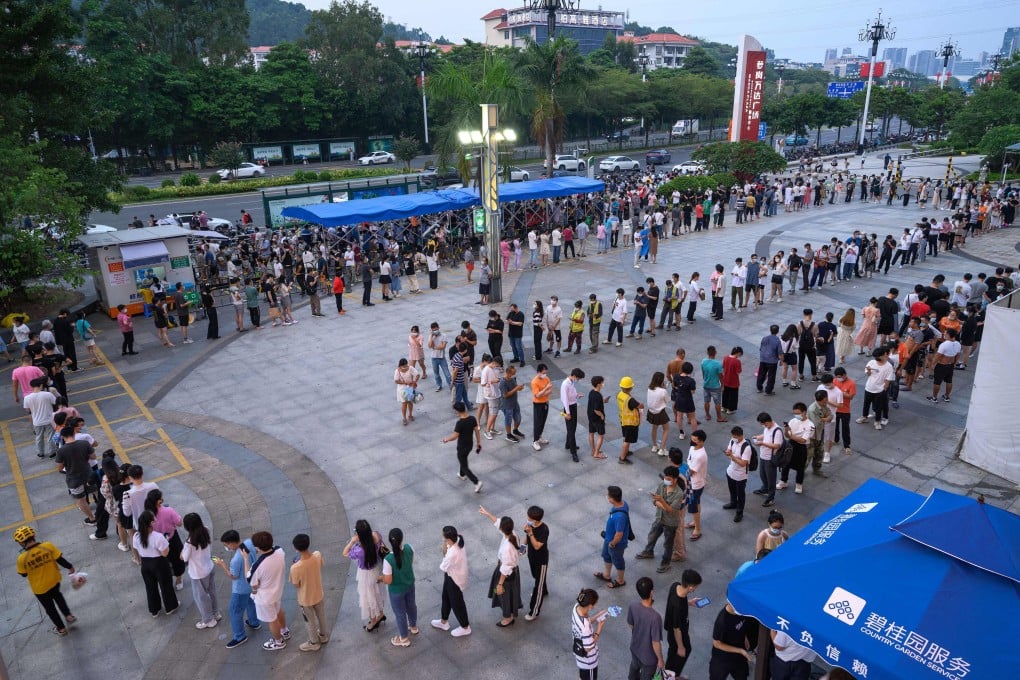Advertisement
Chinese manufacturing hub Guangzhou starts citywide Covid-19 testing
- Districts warn residents that missed tests could result in ‘a lot of inconvenience’ and ‘legal consequences’ as city faces ‘very critical period’
- The city’s Haizhu district, a textile and garment industry centre, emerges as hotspot in latest outbreak
Reading Time:3 minutes
Why you can trust SCMP

The southern Chinese city of Guangzhou started citywide Covid-19 testing on Wednesday as infections rose in the manufacturing hub.
Some districts sent notices warning residents that missed tests would “bring a lot of inconvenience to your life” and could even have “legal consequences”, and residential areas urged people to complete tests before heading to work in the morning.
The Covid-19 situation in the southern Chinese factory base is “in a very critical period”, the Guangzhou Municipal Health Commission said on Wednesday.
Guangzhou reported 27 confirmed and 46 asymptomatic cases on October 25, with five local confirmed cases and 21 asymptomatic cases found in the city’s Haizhu district.
Advertisement
Zhang Yi, the commission’s deputy director, said the city aimed to control outbreaks emerging from certain hotspots and prevent spillover and large increases in case numbers. For cases that spread to other districts, “we will pursue and intercept them one by one while strengthening regular checks”, she said.
She added that a recent outbreak affecting Haizhu district’s textile and garment industry had triggered a new round of transmission.
Since Sunday, the district has issued three notices escalating pandemic control measures.
Advertisement
Advertisement
Select Voice
Select Speed
1.00x
